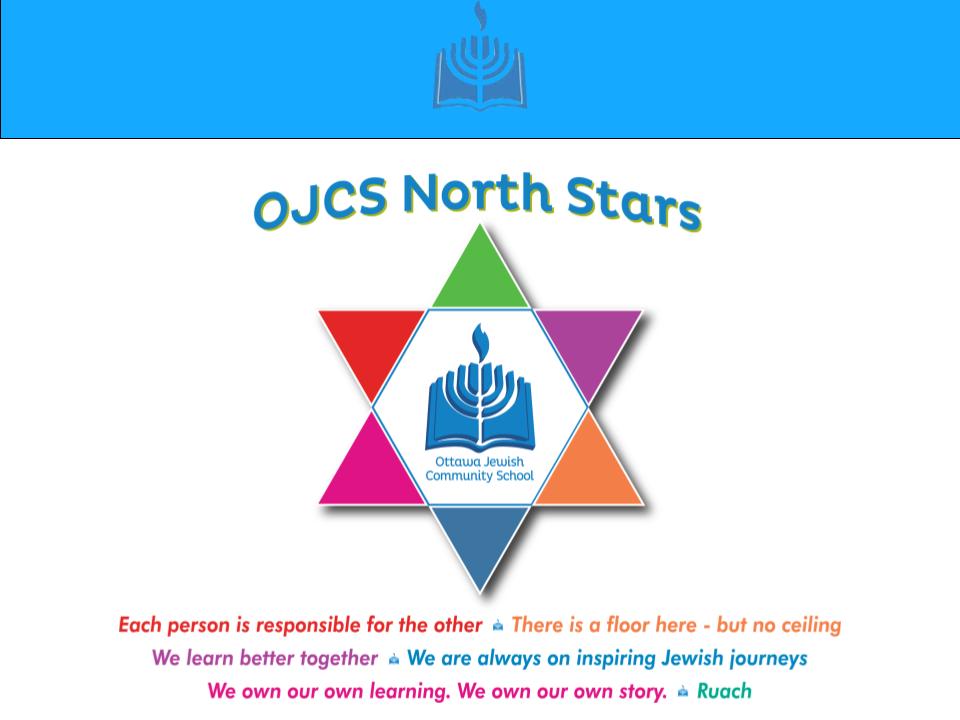We are, in many ways, a 70-year-old start-up.
When we first described OJCS that way back in early 2018—part legacy, part launch—it was an attempt to name something true and tender. OJCS had decades of proud history, beloved teachers, loyal families, and deep community roots. But we were also in the process of becoming something new: more transparent, more innovative, more defined in who we were and what we stood for.
At that time, we were also coming to terms with a generational shift. As a Canadian Jewish day school, we were perhaps a decade behind our American peers in facing a hard truth: that families were no longer going to choose a Jewish day school simply because it was Jewish. That reality may have felt new in Ottawa, but it was already well underway across North America. We needed to clarify our identity, strengthen our programs, and most of all, articulate a compelling reason why a family should choose OJCS.
We knew that solving these wouldn’t just take policies or programs. It would require culture change—and that would require shared language, shared goals, and shared vision. That’s when the idea of the North Stars was born.
Guiding Light: The Creation of Our North Stars
The North Stars were not handed down by any one individual or department. They were co-created by our entire school community. Through deep and intentional work with two outstanding educational consultancies—NoTosh, who guided us through strategic framing, and deepened by Silvia Tolisano z”l, who helped us refine our learning principles—we brought together voices from across the school: faculty and staff, administrators and board members, parents and students, alumni and donors.
Through workshops, surveys, town halls, and countless drafts, we asked ourselves and each other:
-
What do we believe to be true about how children learn best?
-
What kind of graduates are we trying to shape?
-
What values do we want to guide our decisions?
-
What makes our school not just good, but worth choosing?
From this rich, communal process, we emerged with a set of six aspirational beliefs—what we came to call our North Stars:

As we wrote in one of the earliest blog posts introducing them:
“We chose the term ‘North Stars’ quite intentionally. North Stars are aspirational. North Stars help you find your way. North Stars are what you aim for. North Stars are bright and visible. North Stars are eternal.”
From Vision to Practice
Once our North Stars were named, we began the long—and ongoing—work of making them real.
We embedded them into the physical space of the school, into our strategic documents, into our classroom practices, and into our school culture. They became a touchstone in how we spoke to students, how we evaluated teachers, how we communicated with parents, and how we made leadership decisions.
They showed up in places big and small:
-
We own our own learning.
Example: Students maintain digital portfolios, or “blogfolios,” where they document their learning journeys, reflecting on their growth and taking ownership of their educational narratives.
-
Each person is responsible for the other.
Example: Our community engagement initiatives, such as partnerships with local organizations and social action projects, embody this value by encouraging students to contribute positively to society. The Rabbi Bulka Kindness Project serves as a clear example.
-
We learn better together.
Example: Collaborative learning is emphasized through group projects and peer-to-peer teaching, fostering a culture where students and teachers alike benefit from shared knowledge and experiences.
-
We are always on inspiring Jewish journeys.
Example: Our curriculum integrates Jewish learning with modern experiences, encouraging students to explore their heritage and identity in meaningful ways.
-
There is a floor here, but no ceiling.
Example: Our commitment to personalized learning ensures that while every student meets rigorous academic standards, there are no limits to how far they can go, with opportunities for enrichment and advanced studies.
-
Ruach (Joyfulness/Spirit)
Example: Joy and spirit are infused into learning through various programs and celebrations, fostering an environment where enthusiasm and positivity are integral to the educational experience.
As we wrote in a follow-up reflection:
“They’re not decorative statements. They’re action-oriented commitments that should shape what we teach, how we teach, how we lead, and how we relate.”
That’s exactly what happened.
Looking Around and Looking Ahead
Seven years living our North Stars later, it is clear that we are no longer the school we once were. We now have a clear and compelling value proposition—one rooted in the North Stars we chose, the culture we shaped, and the learning we champion.
That doesn’t mean the work is done.
But it does mean that the purpose of our North Stars has shifted. In 2018, they were a response to institutional uncertainty. In 2025, they are anchors of identity.
As we look forward, the work is not to revise or revisit them. It is to reach ever closer.
These North Stars were not meant to be milestones to hit and then move past. They are permanent touchstones in the sky, fixed points by which we steer the ship. They continue to ask us hard questions:
-
Are we truly empowering students to own their learning?
-
Are we living the value of mutual responsibility?
-
Are we continuing to meet the moment, as a school for this time?
We believe the answer can keep being “yes”—if we keep following where the North Stars lead.
Two Posts Remain
This is the fifth in a six-part series looking back at the work we’ve done together—and looking forward to where the school may go next.
The final installment, coming soon, will focus on the “J” in OJCS.
And then, one final post will follow: my words of farewell as I prepare to step away from this remarkable school and community.
Until then, I’ll simply say this:
May we always be a school with stars to guide us—and the courage to follow.

